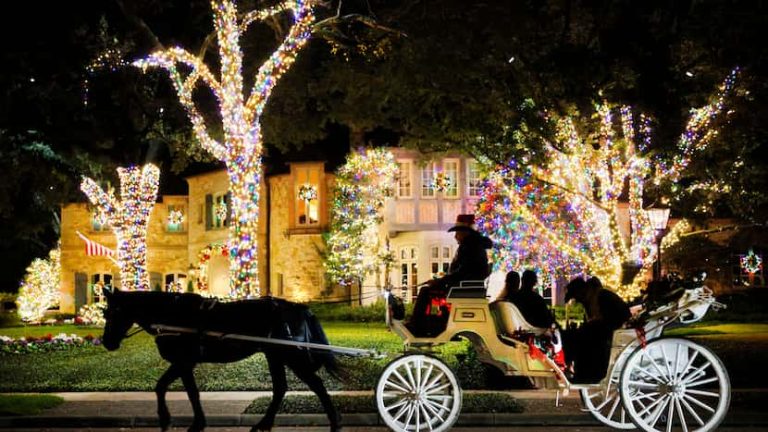Dallas city officials may ban horse-drawn carriages, making the city one of the largest in the nation to ban horse-powered vehicles.
The city council is scheduled to vote Wednesday on a proposed ban on such carriages on public roads in downtown New York. City officials said that if approved, carriages would still be allowed to operate on private property and operators would be able to electrify them.
The move comes after city officials and animal rights activists expressed concern that the practice is dangerous to animals and drivers, and that the city doesn’t have enough resources to properly police the practice.
“In addition to all the factors that could startle a horse and cause a tragedy, we only have one legally permitted business in our city, and many others that illegally operate horse-drawn carriages on our streets,” said City Councilman Adam Bazaldua, who chairs the City Council committee that proposed the ordinance change. “This isn’t an attack on one business. It’s the fact that we don’t have the capacity to regulate a much larger industry.”
Officials with the Dallas Department of Aviation, which regulates horse-drawn carriages in Dallas, say they have no record of any accidents involving North Star Carriage, the only carriage company permitted to operate in the city.
Two regulatory inspectors oversee all toll transportation operators in the city, which includes taxis, limousines, and ride-sharing services such as Uber and Lyft. Dallas’ Department of Aviation took over toll transportation regulation from the Department of Regulatory Compliance in 2016.
Unlicensed carriage operations in Dallas include those operating at events such as weddings, funerals and birthday parties. Inspectors told city council members in April that the city’s rules on carriages can be difficult to enforce because there are too few crews and many rides take place at night and on weekends.
Brian High, owner of North Star Carriage, said the impact of the ban will extend beyond his company.
For example, he estimates that there are at least a dozen companies that have routes in Highland Park year-round but park their carriages and prepare their horses in nearby Dallas.
“We’re all baffled that they could vote for this ban when it’s not based on any information that shows there are actual problems in Dallas,” said High, who is licensed to operate five vehicles on Dallas streets. “Other operators have been operating in Dallas for short periods and have not experienced any safety issues.”
Mr High said he feared the ban would force the closure of the business he has managed since 1996. He said the business employs up to 40 people and rotates at least 10 horses over the Christmas period, its busiest period.
He said he is considering legal action if the city approves the ban.
“If and when that happens, we’ll cross that bridge,” High said.
Bazaldua said the ban is being discussed now because members of the Assembly’s Quality of Life, Arts and Culture Committee highlighted it as a priority last year.
If the ban is approved, Dallas would join cities like Chicago, Salt Lake City and Biloxi, Mississippi, in outlawing the practice. San Antonio, Philadelphia and New York City are among the cities where officials have recently proposed similar bans. The scene of a carriage horse collapsing on a Manhattan street in August 2022 and police using a hose to wash it off is a defusing cry for reform in New York.
Gloria Carbajal, leader of a group calling for a Dallas horse-drawn carriage ban, said she suspects horse-related accidents often go unreported because the city doesn’t have enough inspectors. If the ban is approved, she said she hopes the city would provide assistance to affected businesses.
“I hope the city will make a decision that is common sense and compassionate for all involved,” Carbajal said. “Accidents can happen at any time. It’s not a question of if, it’s a question of when.”

